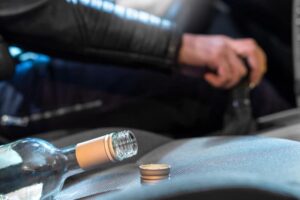Addiction is a difficult disease to deal with, and it affects people in a variety of different ways. For this reason, it isn’t always easy to spot the signs that your loved one is an addict.
That said, below we’re listing five signs that your loved one is an addict. We hope this helps you get your loved one the help that they need.
Physical Changes
There are a whole host of physical changes that can happen when someone is addicted to a substance.
Many of these substances have an effect on metabolism, and they can also impact someone’s motivation to engage in physical activity.
Hygiene
Depending on the level of obsession your loved one has with the substance, they may not have the emotional bandwidth to care about their appearance.
This could mean they’re not showering as regularly as they used to, they’re not changing their clothes as often, they’re not getting their hair cut, etc.
Secrets
If your loved one is in the throes of addiction, they may not want to get help. Since admitting you have a problem is the first step towards getting that help, it makes sense that they would try to hide their behavior from you.
In some cases, they may simply be acting suspiciously, acting evasive in certain situations. In other cases, they may outright lie about what they’re doing. While it’s important to respect someone’s privacy, you want to be vigilant if you believe they’re keeping an addiction secret from you.
Mood Swings
Addiction can often cause changes in the energy your loved one has. Whether this means increased or decreased energy will vary based on whether they’re addicted to a stimulant or a depressant. This change in energy can lead them to behave differently than they used to, changing their outlook on the world.
Along with this, if your loved one doesn’t have access to the substance they’re craving, this may lead them to be increasingly irritable.
Risky Behavior
Addictive substances encourage increasingly risky behavior, for a few reasons. First, they can often impair judgement. Second, the time and money required to fuel the addiction can be more troublesome as time passes.
This means your loved one may begin stealing things to pay for the substance, or they may get in trouble for missing work.
Addiction Treatment and Support in Miami, Florida – Transitions Recovery Program
At Transitions Recovery, we’re committed to addiction support. We understand that addiction is a disease that is difficult to fight by yourself. That’s why our professionals are here to ensure your loved one gets the help they need.
If you have any questions about our facility and what policies we’ve put in place to ensure your safety during Covid 19, call us toll free at 800-626-1980 or fill out our online contact form.

















